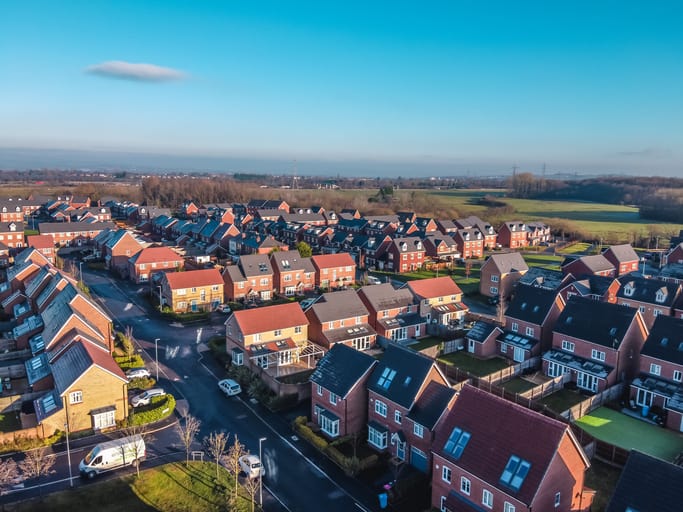Share this page:
If you’ve been following the news on the UK housing market, you’re probably aware that house prices have risen dramatically in the last year. The rise has been caused by a combination of factors, with a big one being an imbalance between supply and demand. But what does the future hold? Are house prices set to continue rising? Or could we finally see a drop in prices in the near future? Here is the latest house price forecast.
What has happened to house prices?
According to the latest figures from Nationwide Building Society, the average UK property price has increased by more than £30,000 since the start of the Covid-19 pandemic. This increase means that the price of an average home in the UK has now topped £250,000 for the first time on Nationwide’s House Price Index.
The index shows that the price of an average house rose by 0.7% in October, up from 0.2% in the previous month. This brought the annual growth rate of house prices to 9.9%, which is higher than the 9.3% economists forecast.
Robert Gardner, Nationwide’s chief economist, explains: “Demand for homes has remained strong despite the expiry of the Stamp Duty holiday at the end of September … Combined with a lack of homes on the market, this helps to explain why price growth has remained robust.”
What’s the house price forecast for the near future?
Nationwide’s figures are a clear reflection of the resilience of the UK housing market during the pandemic.
Even the gradual withdrawal of the Stamp Duty holiday over the last few months has not dampened the market’s momentum as many predicted it would.
However, the future is becoming increasingly hazy, and Robert Gardner has called the outlook for the housing market ‘extremely uncertain’.
He believes future house price rises will depend on several factors. These include interest rates, consumer confidence and the economy’s response to the withdrawal of government pandemic support measures such as the furlough scheme.
“If the labour market remains resilient, conditions may stay fairly buoyant in the coming months – especially as the market continues to have momentum and there is scope for ongoing shifts in housing preferences as a result of the pandemic to continue to support activity,” says Gardner.
He adds that a rise in interest rates in the future may cool the market. However, the impact on borrowers is likely to be modest at most.
Another expert, Andrew Wishart, a property economist at Capital Economics, says that house prices are likely to continue beating expectations in the near term “before a gradual rise in mortgage rates applies the brakes in the second half of 2022”.
What should buyers consider before buying a home?
It’s important to keep an eye on the house price forecast when deciding whether to buy a house.
That being said, forecasts are just that: forecasts. No one can predict what will happen to house prices in the future with any certainty. As a result, you should not base your decision solely on forecasts. Your needs and your current circumstances should come first.
For example, if your dream home is available, if you can afford it and if you intend to live there for the long term, it may be safer to buy now rather than wait for something that may or may not happen.
On the other hand, if your financial position is not ideal, or if you have not been able to find a home within your budget, then it might make sense to hold off.
Waiting may allow you time to improve your finances and save more money for a deposit. This can give you more purchasing power later on, even if the housing market does not cool.
If you are unsure of whether it’s a good time to buy, consider talking to a financial adviser.
Was this article helpful?
YesNo
About the author
Sean is a personal finance writer with a strong passion for helping others become more financially literate and make better financial decisions. He covers everything from credit cards to savings to investing.
Share this page:
Some offers on The Motley Fool UK site are from our partners — it’s how we make money and keep this site going. But does that impact our ratings? Nope. Our commitment is to you. If a product isn’t any good, our rating will reflect that, or we won’t list it at all. Also, while we aim to feature the best products available, we do not review every product on the market. Learn more here. The statements above are The Motley Fool’s alone and have not been provided or endorsed by bank advertisers. John Mackey, CEO of Whole Foods Market, an Amazon subsidiary, is a member of The Motley Fool’s board of directors. The Motley Fool UK has recommended Barclays, Hargreaves Lansdown, HSBC Holdings, Lloyds Banking Group, Mastercard, and Tesco.
This post was originally published on Motley Fool




